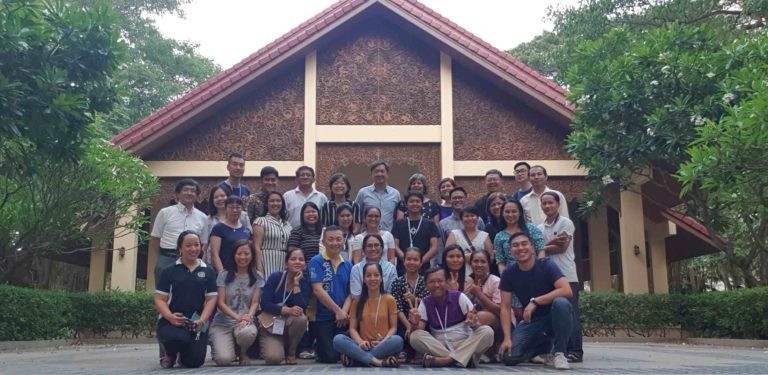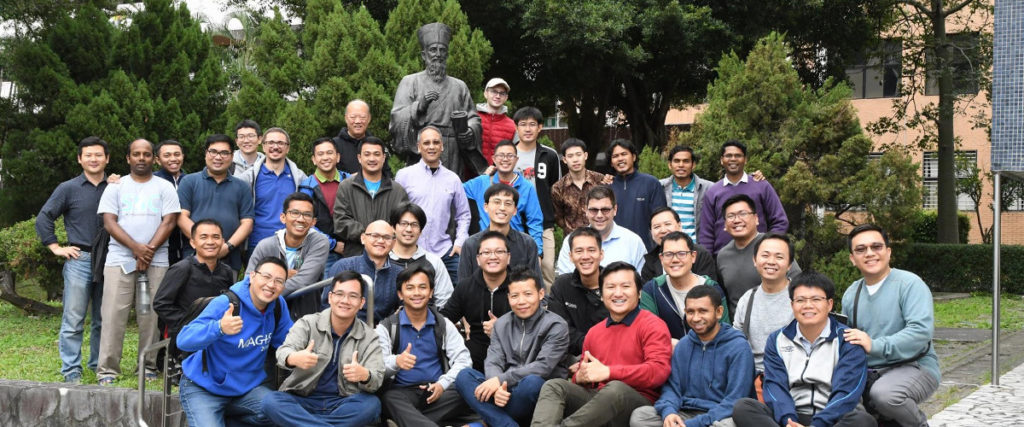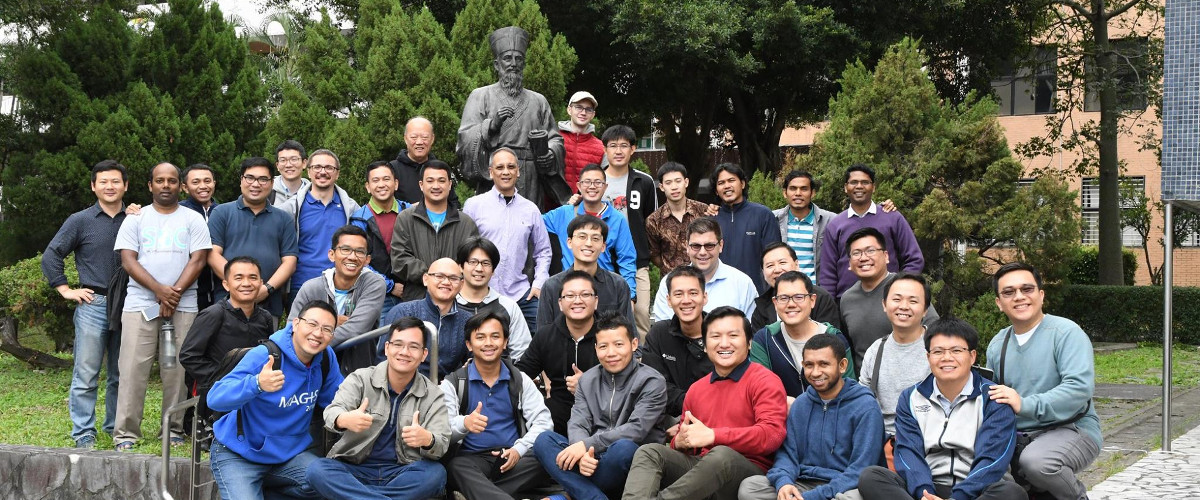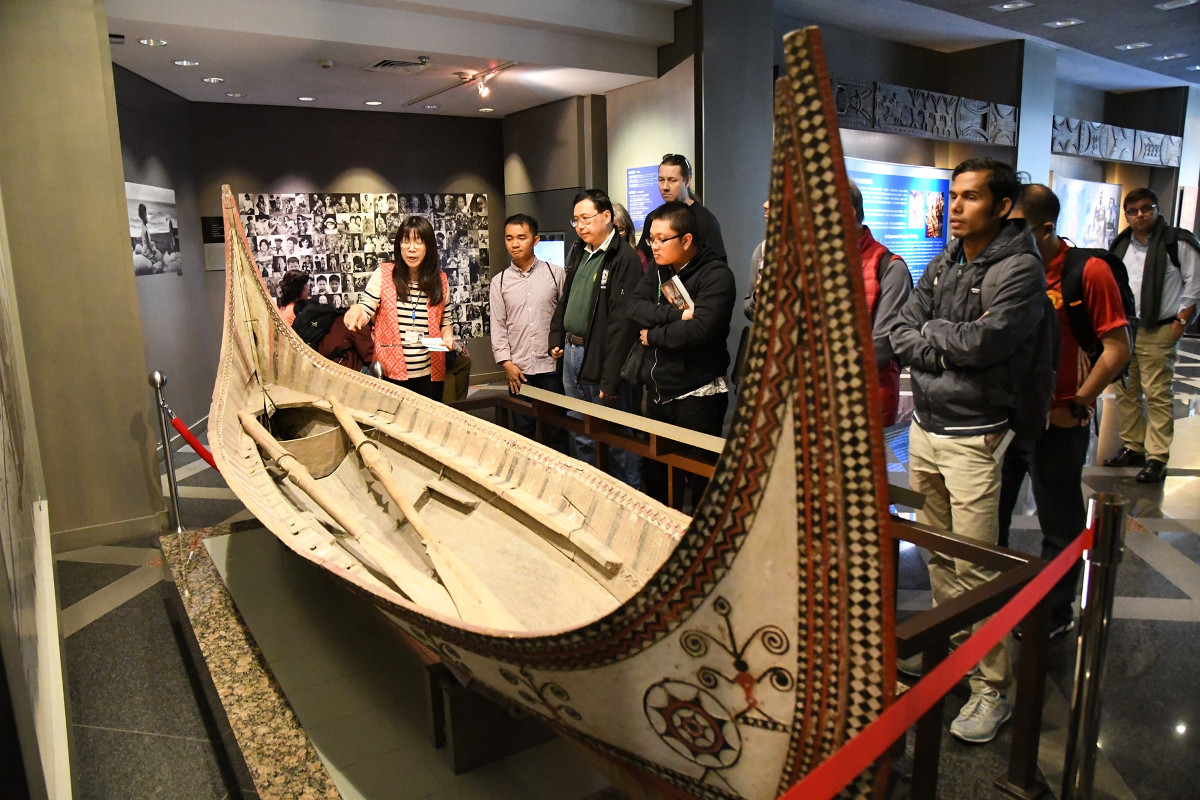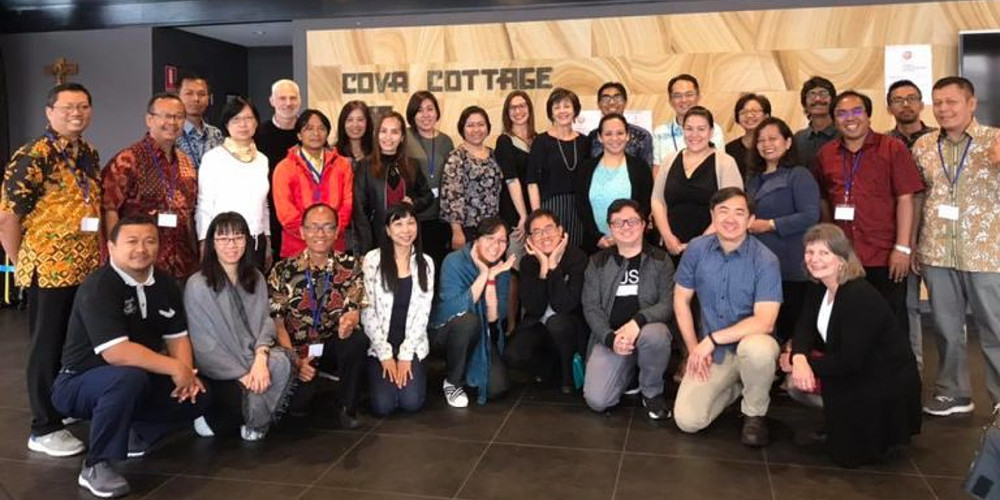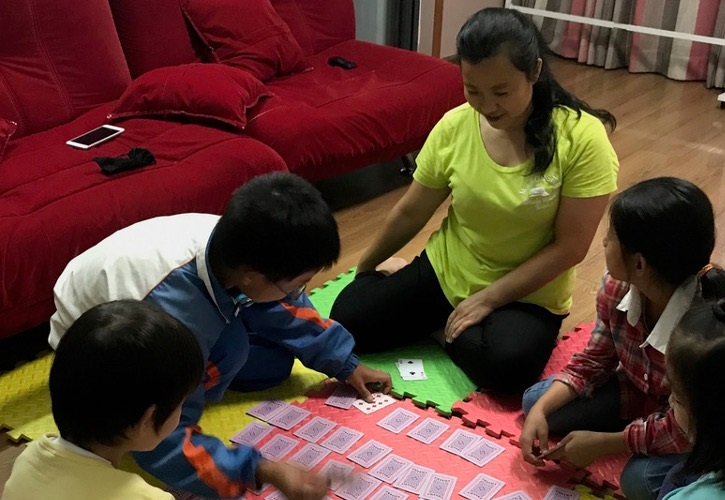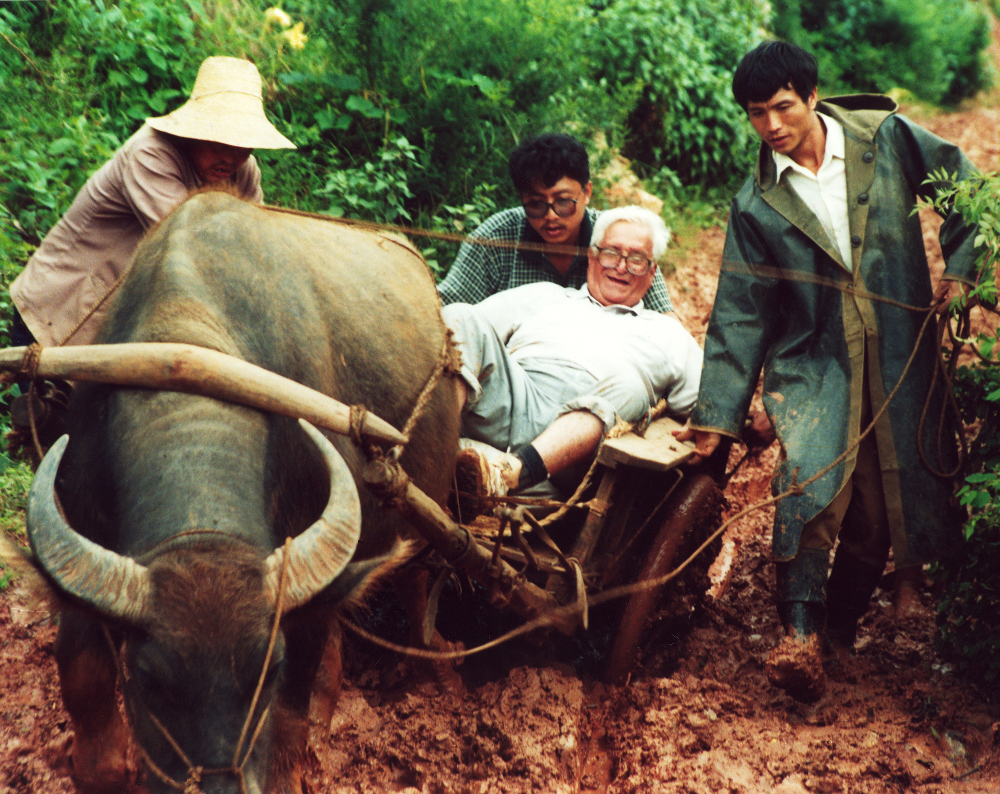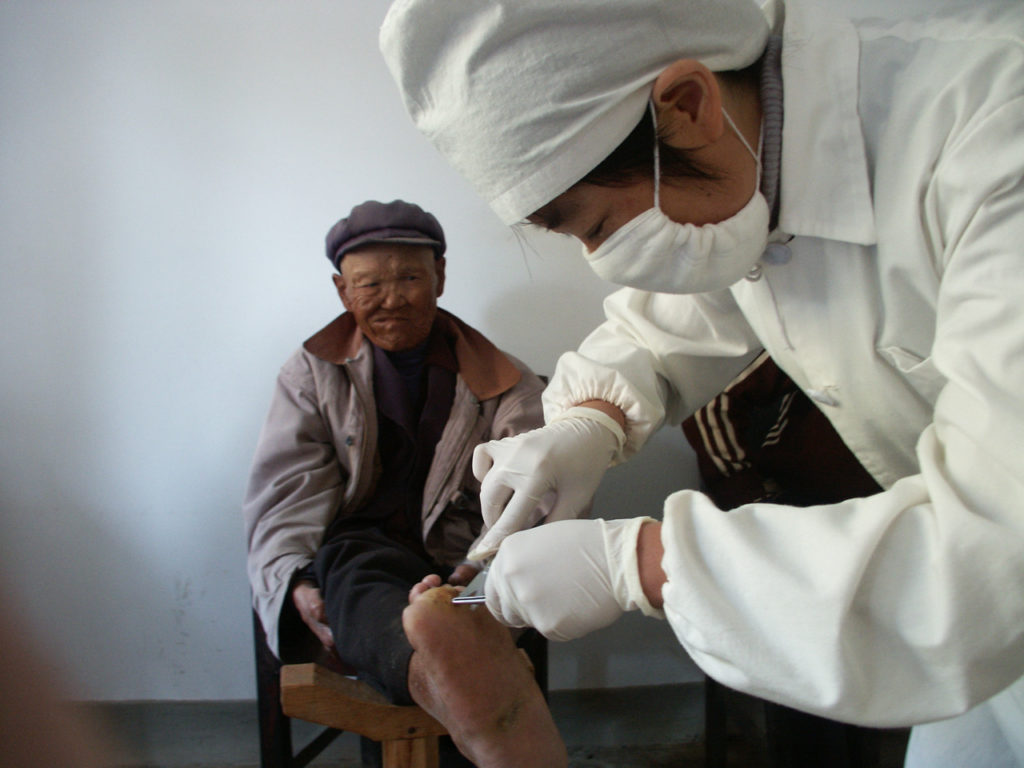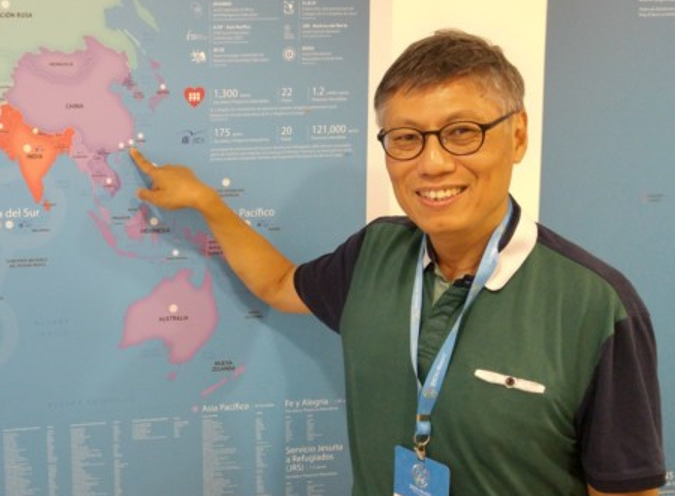One of the distinguishing features of Jesuit education is the inclusion of community service in the curriculum. The Beijing Center (TBC) is rooted in the Ignatian tradition of being “men and women for others”.
 Since TBC’s founding in 1998, students in the study abroad programme participate in service learning activities each semester in Beijing. As persons for others, they’ve volunteered with disadvantaged youth, worked as English tutors and helped renovate classrooms in the Beijing suburbs.
Since TBC’s founding in 1998, students in the study abroad programme participate in service learning activities each semester in Beijing. As persons for others, they’ve volunteered with disadvantaged youth, worked as English tutors and helped renovate classrooms in the Beijing suburbs.
This fall semester, students from 11 Jesuit universities in the United States and two from Colombia are participating in TBC’s service learning activities. On September 21 they spent an entire day at the Bethel China Foundation, an organisation which provides support to thousands of vulnerable children through training and outreach at five different locations across the country. One of their projects called “Love is Blind” serves young orphaned children who suffer from visual impairments.
Loyola University Maryland student Zachary met a small girl named Callie at Bethel. “She was very outgoing and had more energy than most of the TBC students combined”, he writes. “This was the highlight of my weekend; to be able to see the happiness in her eyes, and more so, the difference one person can make in someone’s life.”
More service learning opportunities are lined up in October and November, and on November 17, TBC will host its annual fundraiser dinner themed the “Feast of Bartimaeus” with university staff, non-profit and business partners, scholars, professors, alumni, students and their families. The event will showcase the wonderful service learning work the students have done this semester with partner charity organisations, working with disadvantaged youth in Beijing.
“Being that The Beijing Center is a Jesuit organisation, we value service and community as a crucial part of our academic and social life in China,” writes Zachary. “TBC offers plenty of these types of volunteer opportunities and strongly recommends them, as they are eye-opening experiences to say the least!”
Read Zachary’s reflection here.

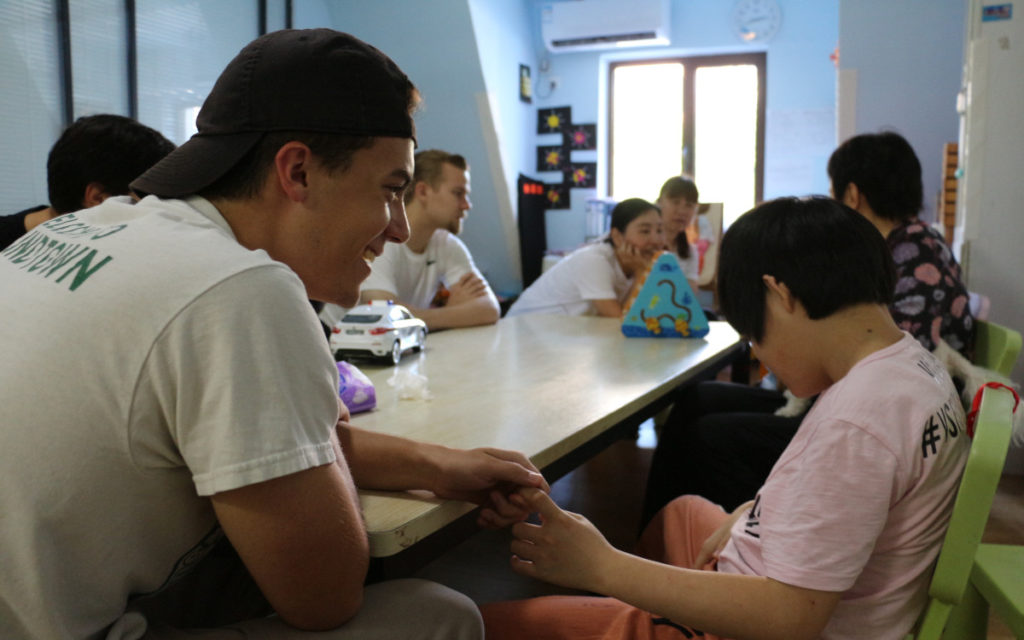
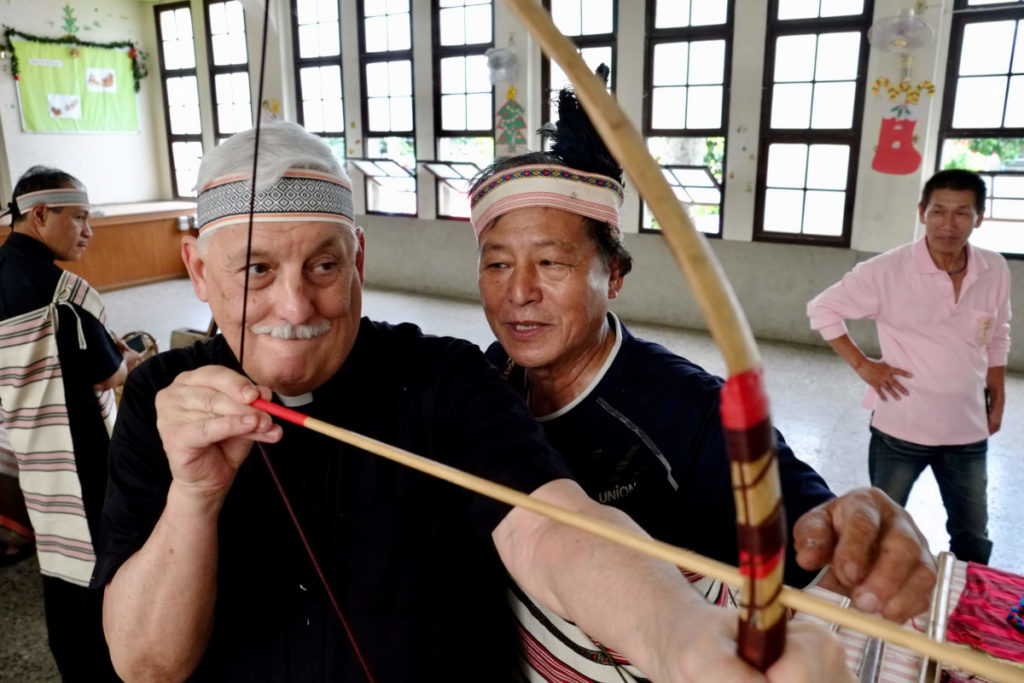
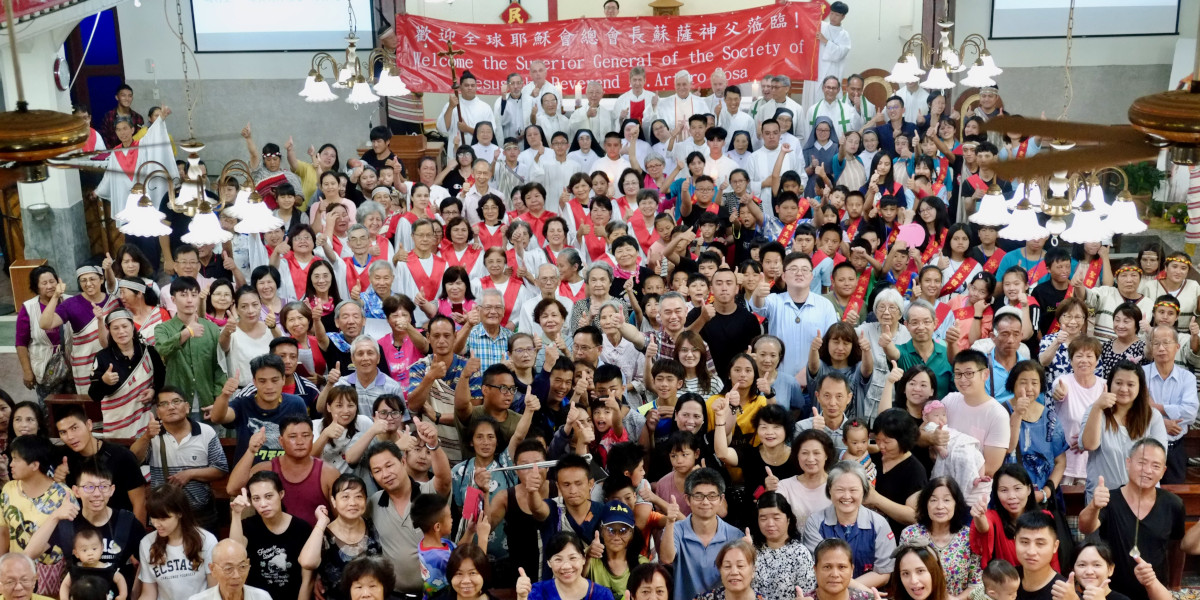 “Choosing life in a context filled with fear and anger and insecurity seems like a daunting task. But it is not impossible – not for followers of Christ.” This was Fr General Arturo Sosa’s message in his homily for the advance celebration of the Feast of St Ignatius in Taipei.
“Choosing life in a context filled with fear and anger and insecurity seems like a daunting task. But it is not impossible – not for followers of Christ.” This was Fr General Arturo Sosa’s message in his homily for the advance celebration of the Feast of St Ignatius in Taipei.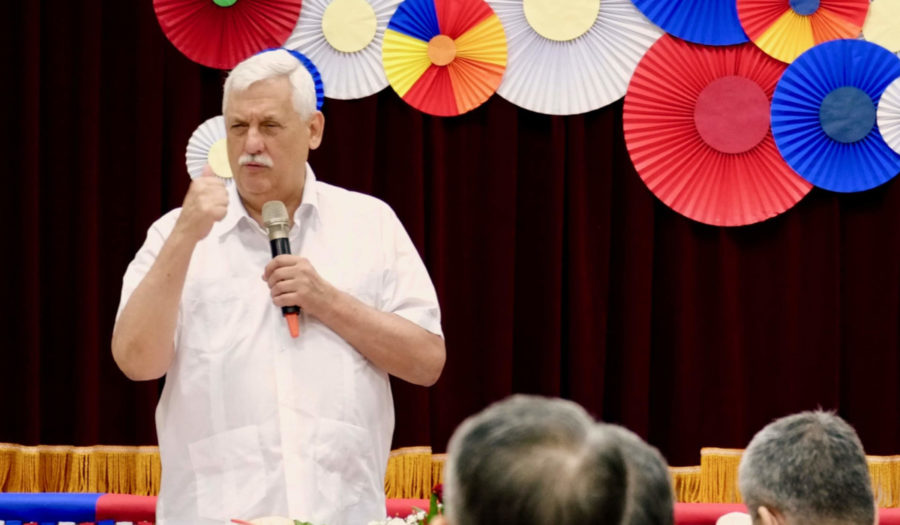 The Superior General was able to see how this courageous faith is being lived out in the social apostolates of the Jesuits in Taiwan. On his first day in Taipei he went to the Rerum Novarum Social Service Center founded by Fr José Ellacuría SJ in 1971. Over the years as society has changed, Rerum Novarum’s services have expanded from low-paid, overworked labourers to migrant workers in Taiwan and migrant workers on fishing boats subject to unequal treatment. The centre manifests the Gospel in action. Fr Sosa showed particular concern for the migrant fishermen.
The Superior General was able to see how this courageous faith is being lived out in the social apostolates of the Jesuits in Taiwan. On his first day in Taipei he went to the Rerum Novarum Social Service Center founded by Fr José Ellacuría SJ in 1971. Over the years as society has changed, Rerum Novarum’s services have expanded from low-paid, overworked labourers to migrant workers in Taiwan and migrant workers on fishing boats subject to unequal treatment. The centre manifests the Gospel in action. Fr Sosa showed particular concern for the migrant fishermen.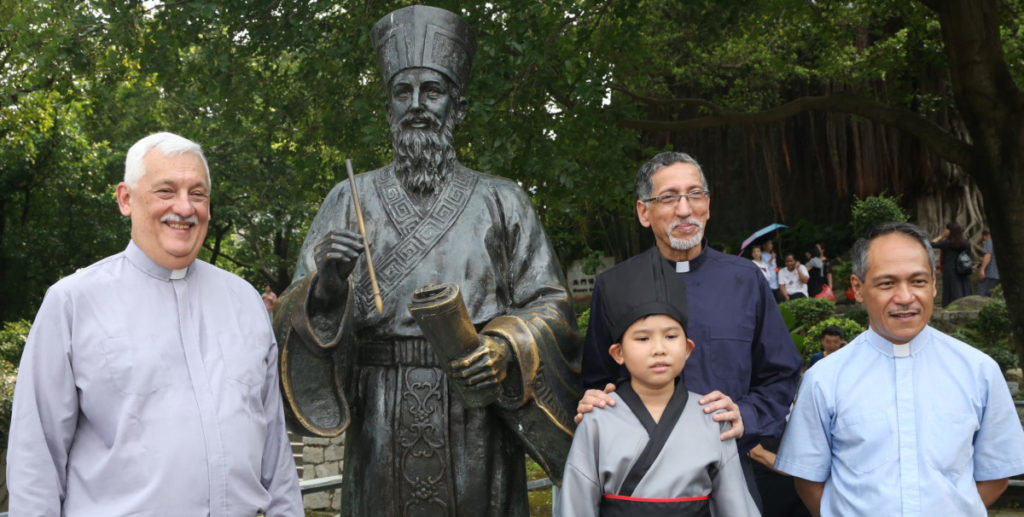
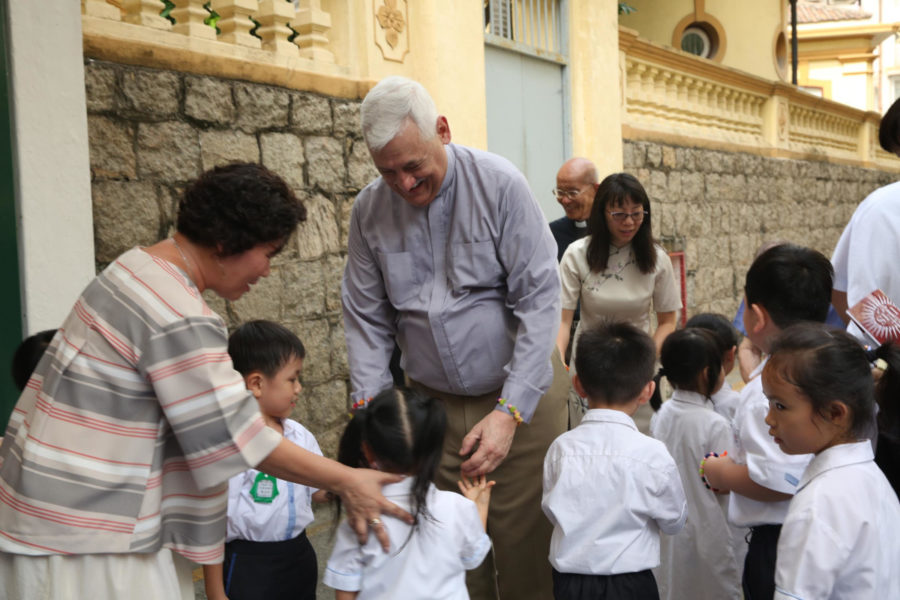 Fr General also met and greeted the staff of Casa Ricci Social Services and Macau Ricci Institute. He also had an opportunity to meet the Jesuit community in Macau. The short trip was closed by the Thanksgiving Mass for 70 years in the Society of Jesus of Fr Yves Camus SJ and 50 years in the Society of Fr Luis Sequeira SJ and Gregory Koay SJ.
Fr General also met and greeted the staff of Casa Ricci Social Services and Macau Ricci Institute. He also had an opportunity to meet the Jesuit community in Macau. The short trip was closed by the Thanksgiving Mass for 70 years in the Society of Jesus of Fr Yves Camus SJ and 50 years in the Society of Fr Luis Sequeira SJ and Gregory Koay SJ.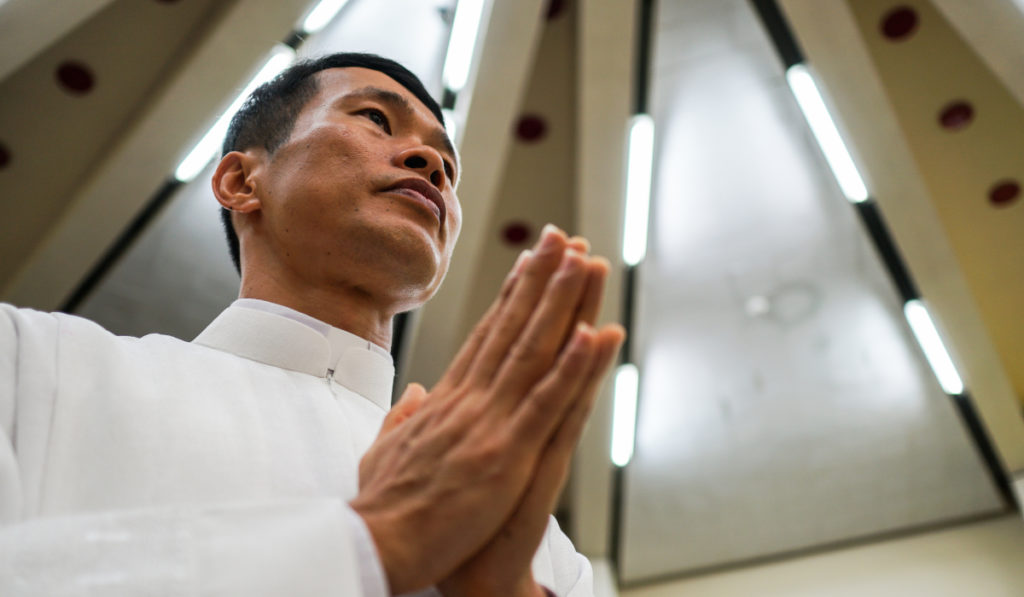
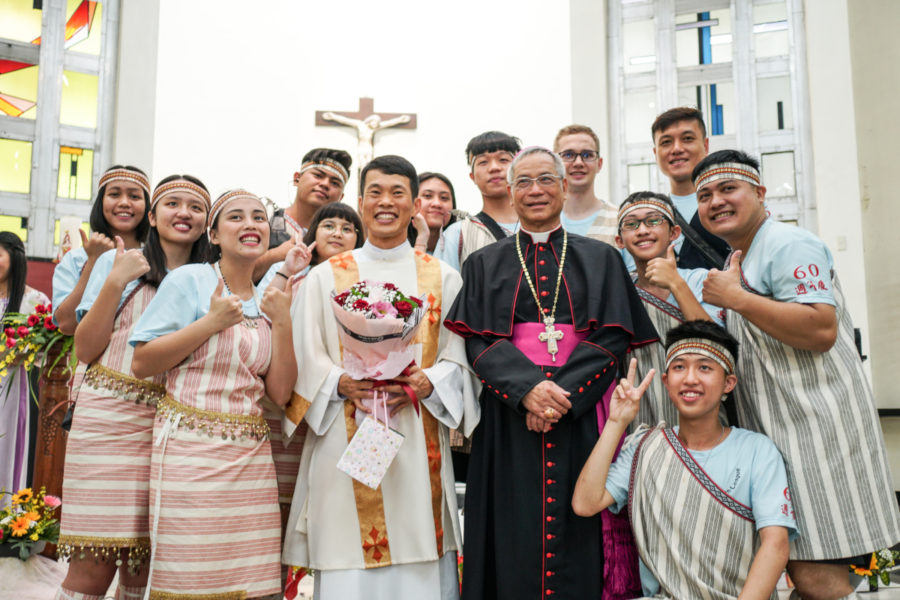 Family, friends and members of religious communities gathered on the bright morning of June 8 to witness the diaconate ordination of Joseph Dang Do Nhan SJ by Most Rev John B Shan-Chuan Hung SVD, Archbishop of Taipei. The Mass was held at St Robert Bellarmine Chapel of Fu Jen Faculty of Theology of St Robert Bellarmine, New Taipei City.
Family, friends and members of religious communities gathered on the bright morning of June 8 to witness the diaconate ordination of Joseph Dang Do Nhan SJ by Most Rev John B Shan-Chuan Hung SVD, Archbishop of Taipei. The Mass was held at St Robert Bellarmine Chapel of Fu Jen Faculty of Theology of St Robert Bellarmine, New Taipei City.